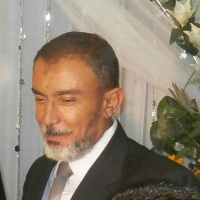Ali Ahmed Ali Kerata was arrested on 19 August 2014 when members of the police forces falling under the Egyptian Ministry of Interior, wearing both uniforms and civilian clothes, broke into his house in Damietta. He was brought to the detention facility of central police of Damietta, where he is still detained to date. Initially accused of participating to illegal demonstrations, on 23 October 2015, Kerata was brought, without the assistance of a lawyer, before the Public Prosecutor of Damietta, where he was discharged of this accusation against him without being released.
On 20 September 2015, Kerata was transferred in emergency to the Mansoura City hospital, where the doctor diagnosed him with life-threatening health issues which would require him to undergo surgery and to start emergency medical treatments. Kerata stayed in the hospital for three days before being transferred back to the central police station of Damietta, against medical advice. Following the diagnosis, his family requested that he be provided with appropriate and immediate medical care, which has constantly been denied by the authorities. Today, Kerata’s medical condition is deteriorating and his family fears that his life is at risk, should he not be allowed to access appropriate and immediate treatment.
In addition to being denied access to medical care, Kerata is also currently detained in inhumane detention conditions. His family reported that he is detained in an overcrowded cell infested with insects, mould on the walls and unbearable odours. Most importantly, he is held in appalling conditions with the high risk of developing infectious diseases at a chronic and speedy rate due to a lack of ventilation and very high temperatures of the cells. Sleeping conditions, as well as basic hygiene installations, are extremely poor, water does not run at a steady rate but only a few minutes a day and electricity cuts happen regularly for long periods of time. These very poor conditions, combined with the absence of medical care, contribute to worsening Kerata’s medical condition and overall situation.
“Systematic denial of medical care in detention is recurrent in Egyptian prisons, as reported by Alkarama in its November 2015 public report which documented more than 300 deaths in detention as a result of denial of medical treatment,” says Simone Di Stefano, Regional Legal Officer for the Nile at Alkarama.
Kerata’s relatives took several steps requesting his release at the level of the Public Prosecutor of Damietta, without tangible results so far. They therefore remain deeply concerned over Kerata’s health conditions and fear for his life. Faced with the lack of responsiveness by the local authorities, Kerata’s relatives turned to Alkarama; which in turn sent an urgent appeal to the SRH to ask the Egyptian authorities to guarantee his mental and physical health, to provide him with access to medical care, and to possibly release him so that he can benefit from appropriate medical treatment.
For more information or an interview, please contact This email address is being protected from spambots. You need JavaScript enabled to view it. (Tel: +41 22 734 1008).
 Algeria
Algeria Bahrain
Bahrain Djibouti
Djibouti Egypt
Egypt Iraq
Iraq Palestine/Israel
Palestine/Israel Jordan
Jordan Kuwait
Kuwait Lebanon
Lebanon Libya
Libya Mauritania
Mauritania Morocco
Morocco Oman
Oman Qatar
Qatar Saudi Arabia
Saudi Arabia Sudan
Sudan Syria
Syria Tunisia
Tunisia United Arab Emirates
United Arab Emirates Yemen
Yemen Other Countries
Other Countries







